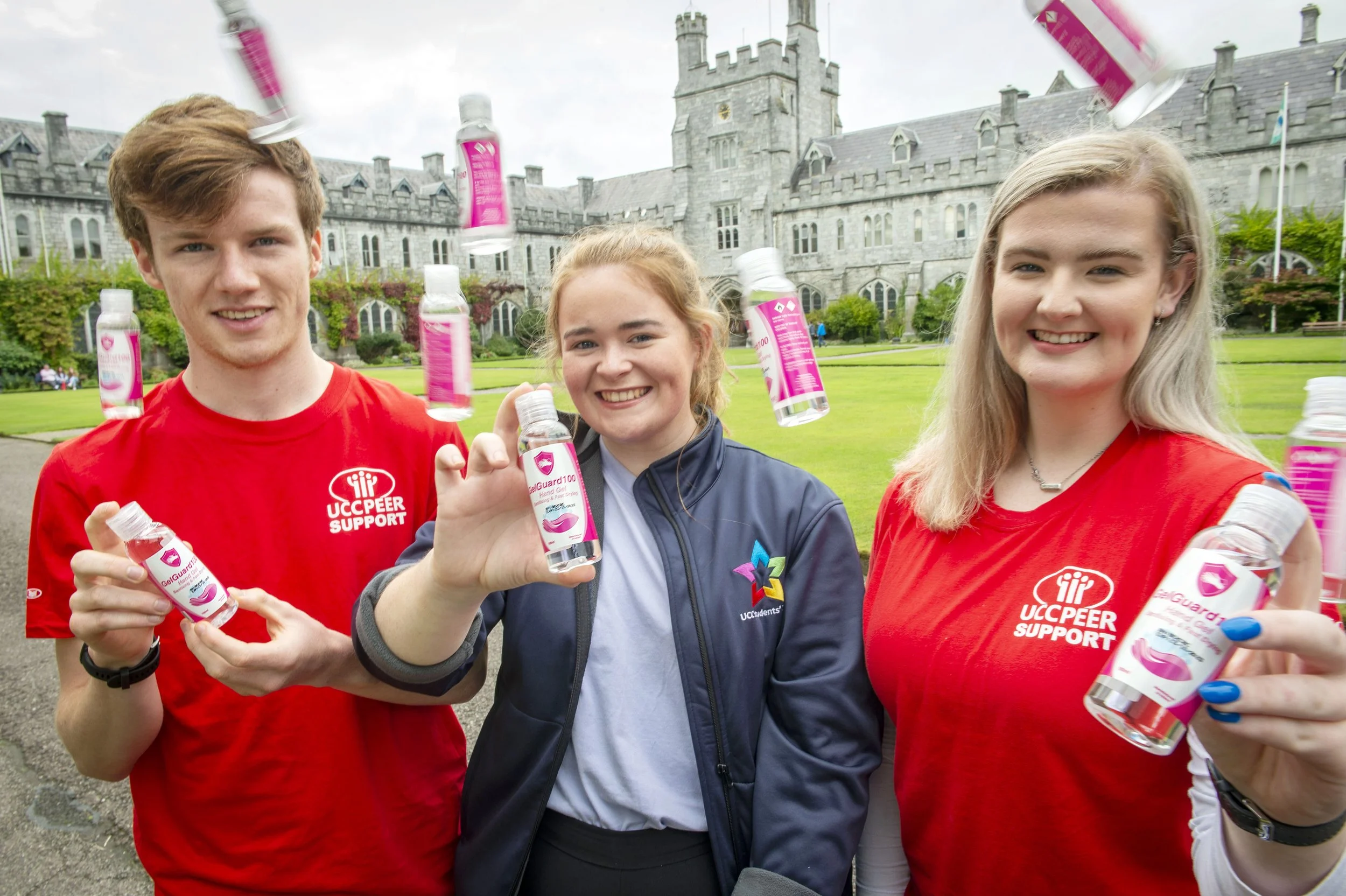UCC’s Continued Plight for Access Equality to Medicine
By Orla Leahy, News EditorWith the medical world constantly changing, there is an increase in the number of initiatives striving to ensure greater access equality to medicine in UCC. These range from initiatives aiming to reduce Covid-19 transmission, to de-stigmatise and to alleviate period poverty, to general health services. At the beginning of this academic year, Mervue Ltd. donated 20,000 bottles, worth €40,000 of hand sanitiser to University College Cork’s Students’ Union to “help keep students Covid-free as they returned to education.” The director of Mervue Ltd., UCC Alumnus, William Twomey, claimed that “It has always been part of our policy to give back, so we are delighted to partner with the Students’ Union in UCC to help protect their students as they return to campus.” The beginning of the Covid-19 pandemic witnessed a dramatic increase in demand, and consequently, supply in hand sanitiser with an alcohol content of above 60%. Sanitiser in a way, became a form of medicine as it prevented the transmission of Covid-19. Mervue Ltd.’s response to the pandemic’s run-on sanitiser, turning part of their animal nutrition manufacturing plant into a hand sanitiser production unit, in partnership with Irish Distillers is indicative of the adaptability required to overcome barriers facing access to medicine.In the midst of a pandemic, increased production, and such donations, help to alleviate the barriers facing students’s access to medicine. Mervue’s donation, Director of Student Experience, Paul Moriarty, stated “not only helps students to stay safe, but also helps to spread the message of keeping safe at this time.” Greta Thunberg, climate and environmental activist, has campaigned for more equal distribution of Covid-19 vaccines. According to the New York Times, as of August 2021, 84% of vaccines administered were administered to those living in high- or upper-middle-income countries. With Covid-19 vaccination walk-in clinics frequently organised on UCC’s campus, the most recent having occurred between the 27th and 30th of September, the Student Health Service is actively facilitating equal access to vaccines for students, staff and the local community. However, when it comes to equitable distribution in greater society, UNICEF’s ‘Get a Vaccine, Give a Vaccine’ campaign offers those who avail of UCC’s vaccination service to provide a free vaccine to either a healthcare worker, or a vulnerable person in a country in need. Consequently, the UCC Community has the opportunity to help to tackle the inequitable distribution of Covid-19 vaccines. On another note, between 53,000 and 85,000 girls and women in Ireland are at risk of period poverty, according to the government’s publication of the ‘Period Poverty in Ireland’ report earlier this year. Period products, akin to hand sanitiser, in that they are both forms of medicine, are not equally accessible to every socio-economic group in our society, the report demonstrated. Unfortunately, there is a certain stigma associated with having to ask for period products. The Red Cross Project’s contribution to the report highlighted this medical inequality. Following a survey of the Red Cross project, the Irish Prison Service began offering all female prisoners a period product pack every month, to reduce the stigma associated with having to request access to period products. UCC Law Society’s Diversity and Inclusion Officer, Emer Connolly, plans on launching a campaign in to destimgatise period poverty and to promote greater access equality here at UCC, in conjunction with the UCC Feminist Society. Emer says that the availability of free, organic, eco-friendly period products in UCC’s restrooms will help contribute to the existence of an environment “where everyone feels socially accepted, respected and supported, regardless of their beliefs or background.”Aside from the above initiatives, UCC has a long-term culture of ensuring all those within the community have improved access to medicine. The Student Health Services offer a variety of treatments, from physiotherapy to eye tests for considerably lower charges than clinics open to the general public. General consultations with a doctor, nurse or psychiatrist are free of charge. Similarly, the Student Counselling Service offers free counselling to students, and Chaplaincy also offers free mental health support services. The President of University College Cork, Professor John O’ Halloran, recently stated that he is “committed to developing an inclusive culture at UCC, where equality is upheld, and diversity is respected.” The variety and scope of external donations, internal grassroot movements, and long-term dedicated services demonstrate UCC’s strong development of a university that supports greater access equality to medicine. Students welcome the donation of hand sanitiser promoting greater access to Covid-19 medical supplies in University College Cork.


